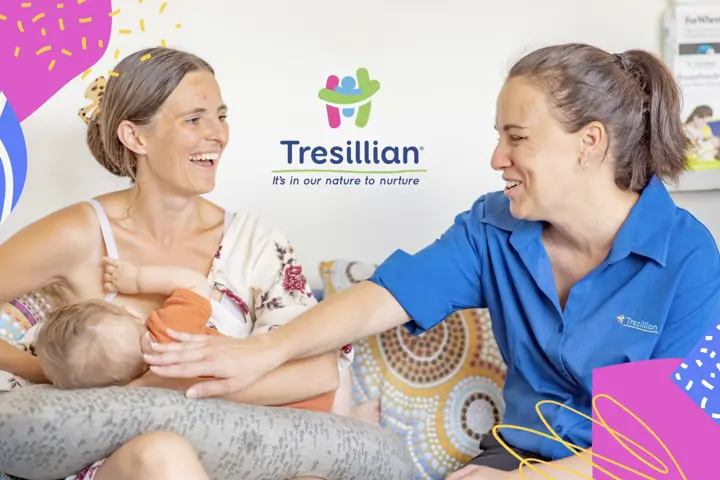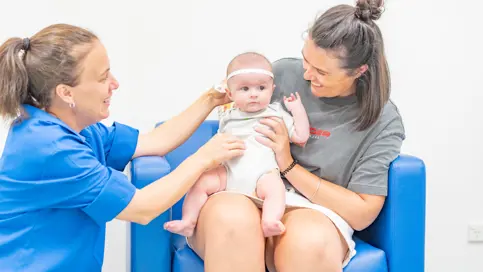Working at Tresillian
Welcome to Tresillian, delivering exceptional child and family health care to ensure healthy communities.


Learn more about how Tresillian supports families
Our Vision and Mission
Our Vision is that every child has the best possible start in life. At Tresillian, we’re dedicated to delivering outstanding child and family health services to diverse communities across NSW, the ACT and in Albury Wodonga, Victoria.
Our Mission is to offer families guidance in the early years of their child’s life; supporting parents with breastfeeding, nutrition & settling the baby, as well as screening & supporting parents with their own mental health. Also, to ensure that every individual receives equitable access to quality care regardless of where they live.
Join our Team!
When you choose to work with Tresillian you become an integral part of our organisation where we foster a welcoming and inclusive environment for staff and the families in our care. We’re committed to recruiting and retaining a diverse workforce that reflects the richness of our community.
Right now, we have positions available across our network of services including at our Tresillian Wollstonecraft Centre.
For all job listings CLICK HERE
Benefits
We recognise the importance of supporting our dedicated staff who enjoy a comprehensive range of benefits designed to enhance your well-being and foster your professional growth. View benefits below.
Generous salary packaging up to $15,900 per FBT year and Meal & Entertainment on top of this amount utilising an additional $2,650 (as a Not-for-profit and registered Health Promotion Charity).
Opportunity to access a large range of clinical and non-clinical education programs, including access to study leave, extended child and family health practice skills for clinicians and a bi-annual Tresillian conference.
Daily wellness and compassion care activities and access to our free and confidential Employee Assistance Program (EAP).
Access to a Fitness Passport.
Applicants who currently work within NSW Health or another Affiliated Health Organisation may be able to transfer their service and leave entitlements to Tresillian.
Free flu vaccination clinics are offered every year throughout our Centres.
Explore Job Opportunities
To explore the exciting career opportunities available at Tresillian, we invite you to visit our dedicated job opportunities page. There, you will find a comprehensive list of positions across various specialties, from nursing and medical staff to administrative and support roles. Join our team at Tresillian to ensure every child has the best start in life. Together, we can make a difference to the lives of our parents and babies and ensure they receive the quality care they deserve.
We look forward to welcoming you to our dynamic healthcare family at Tresillian.




































